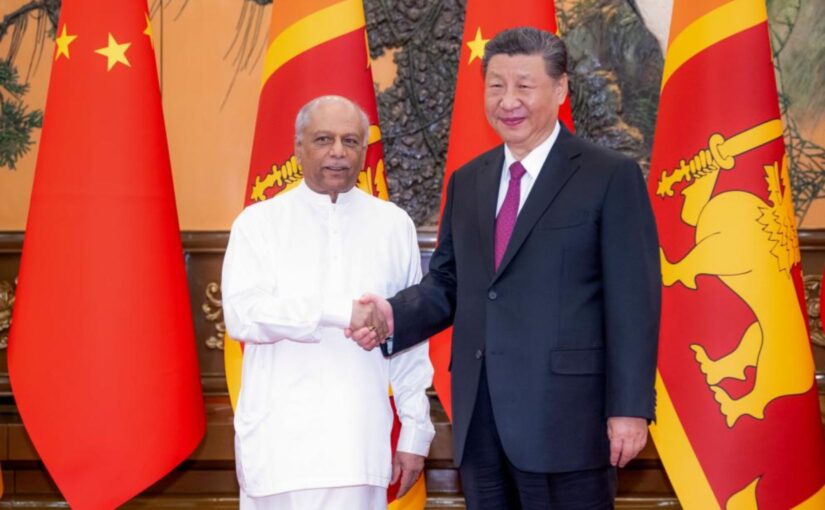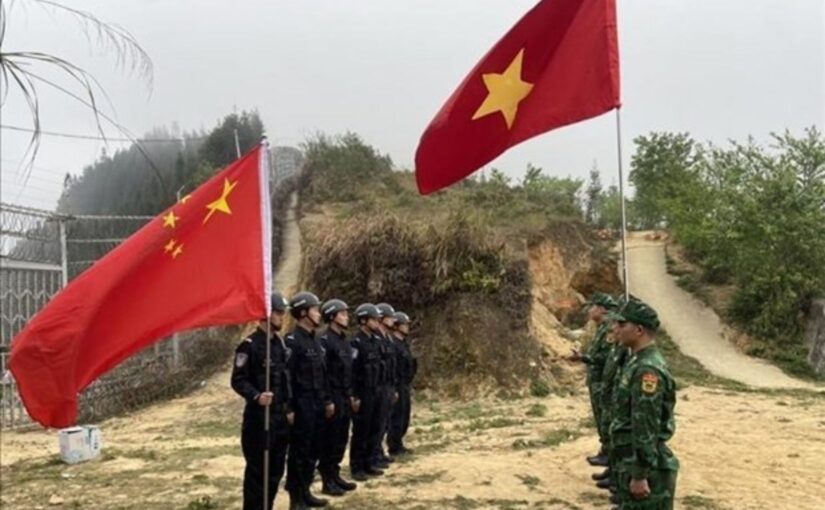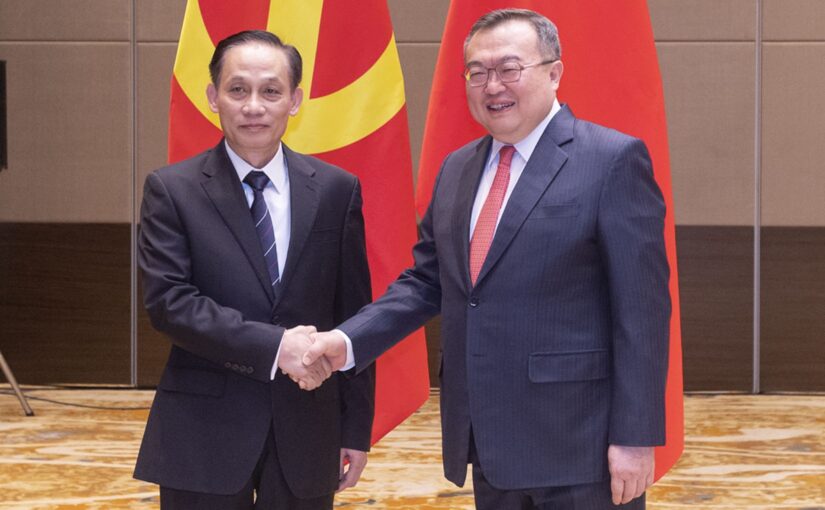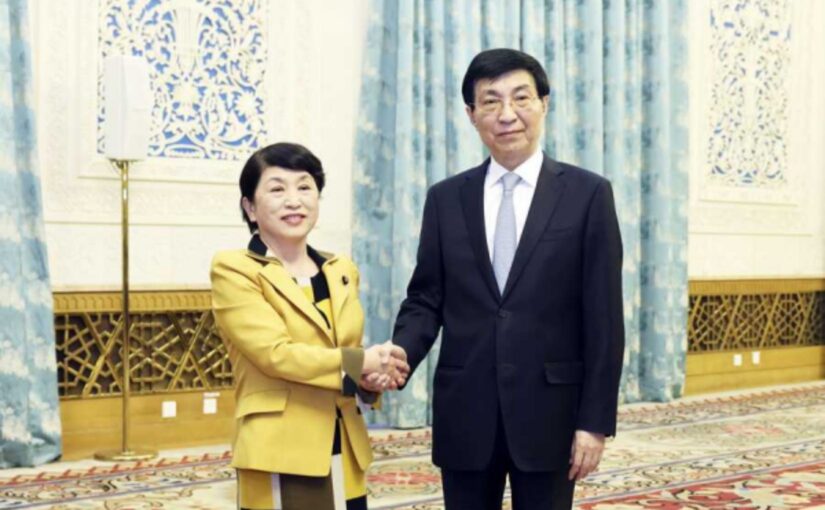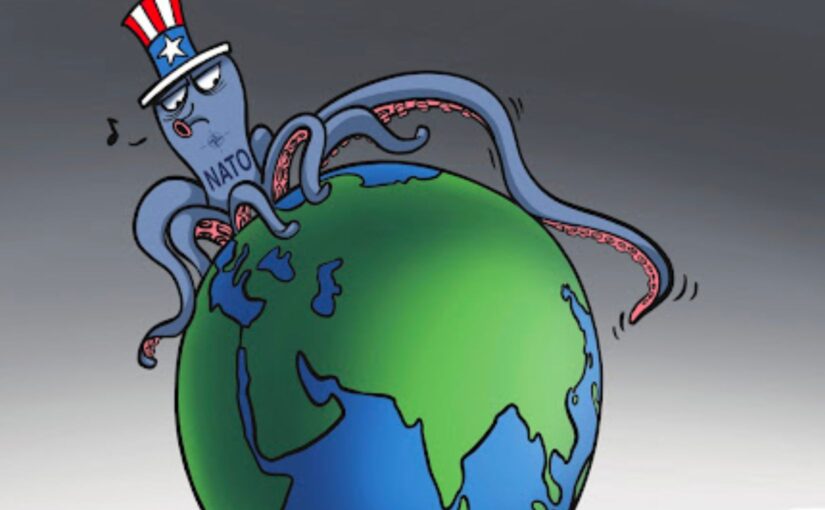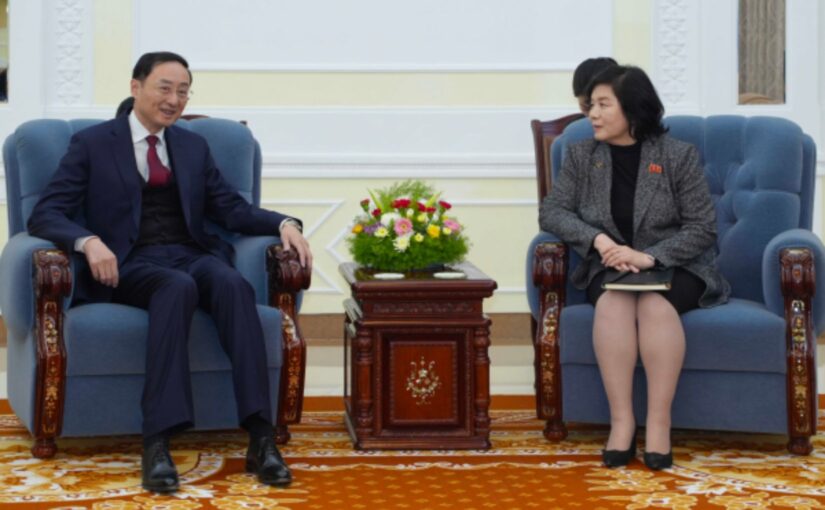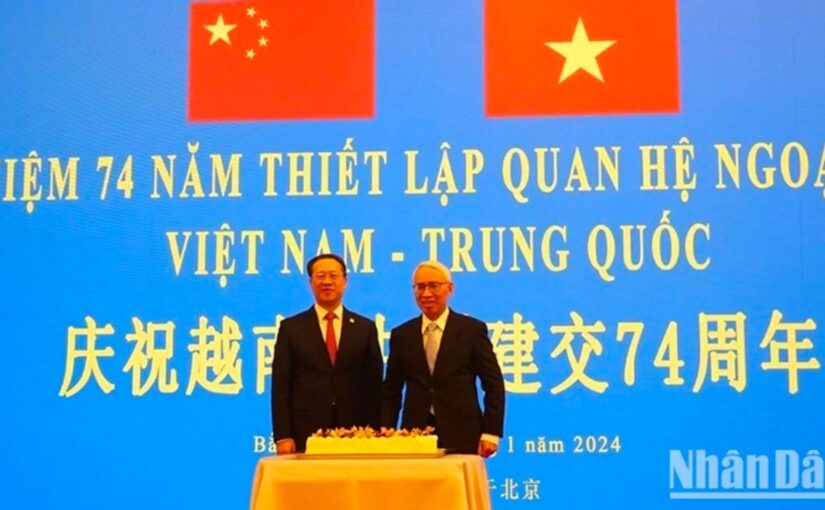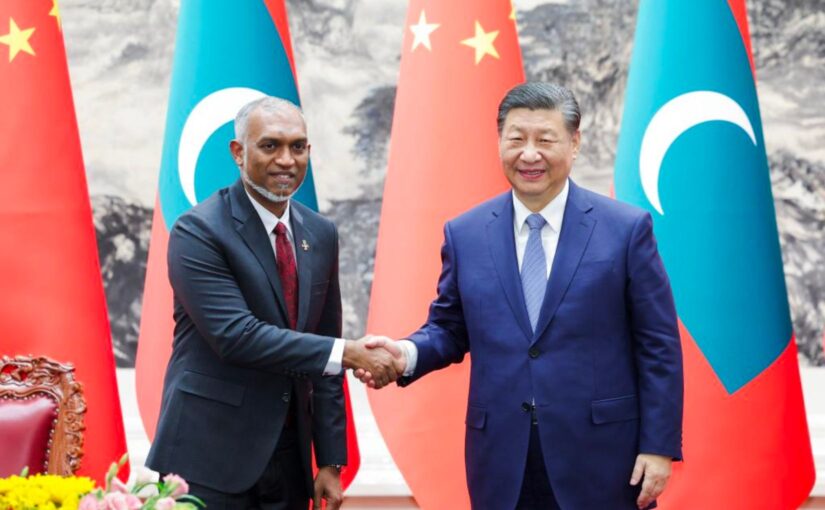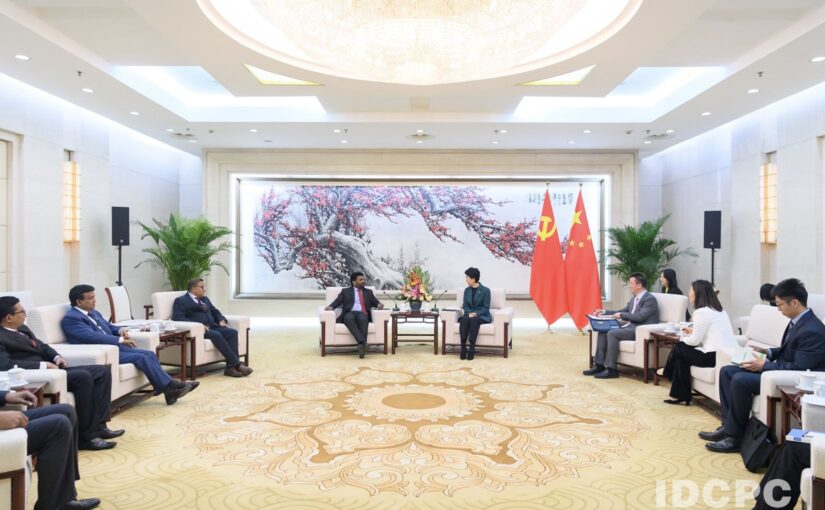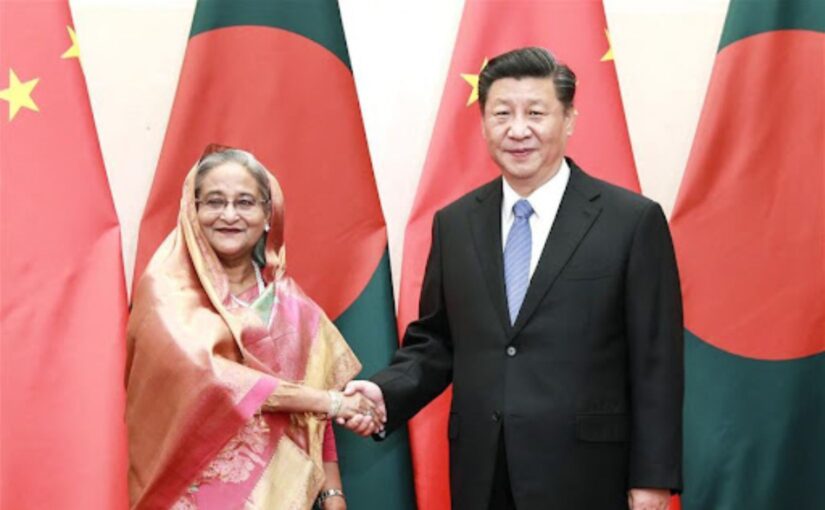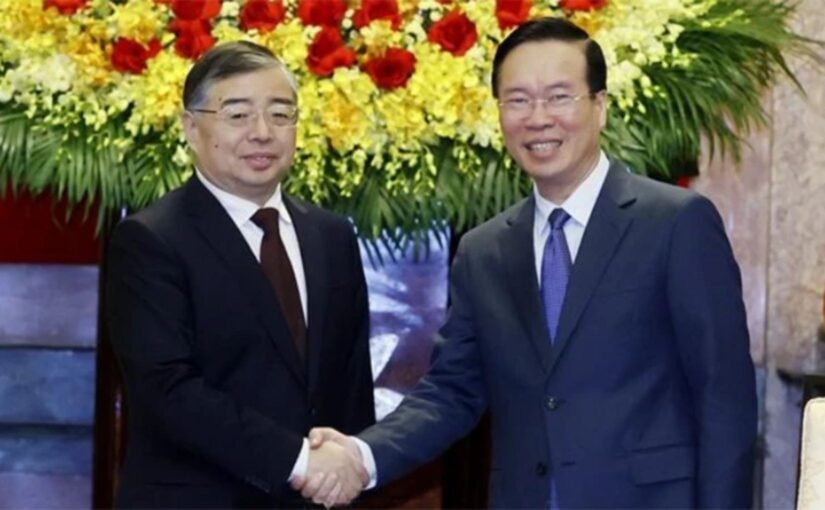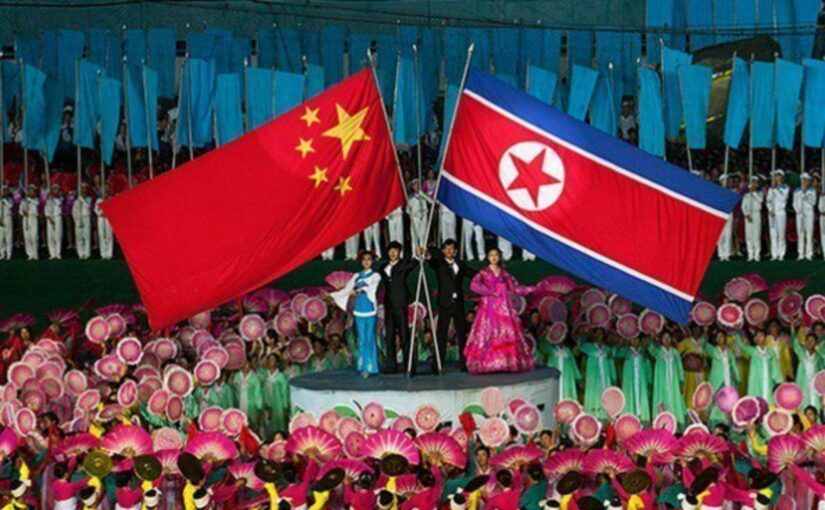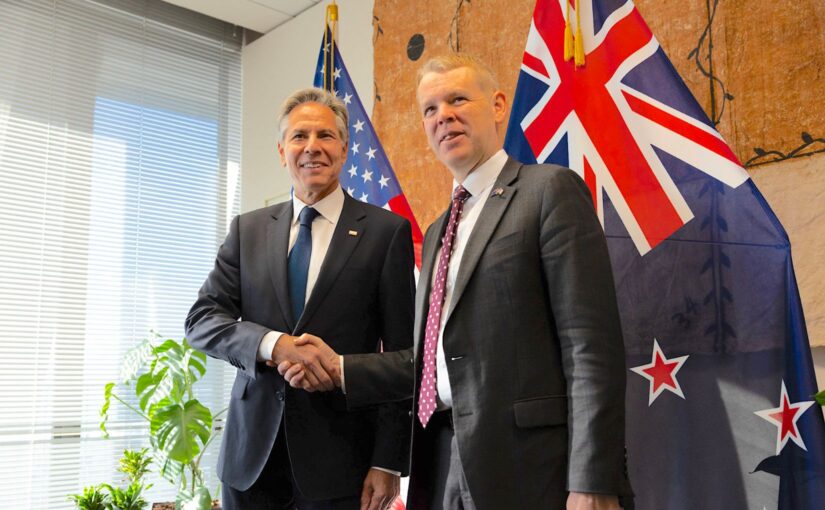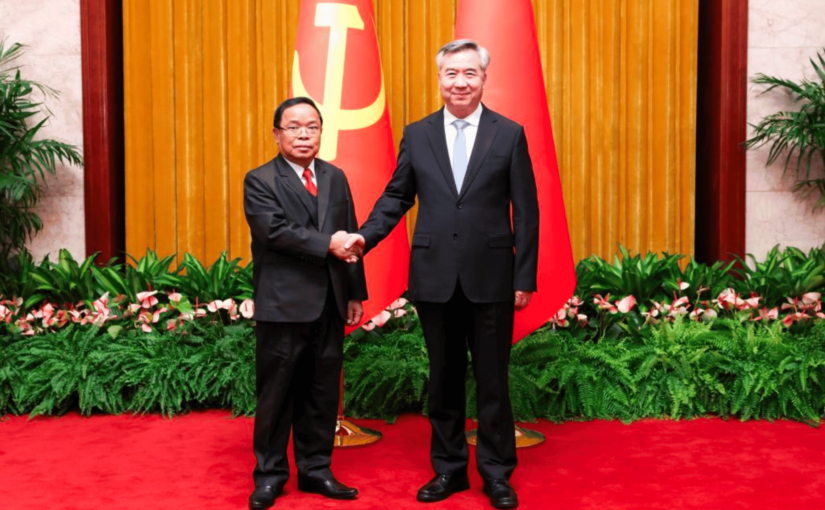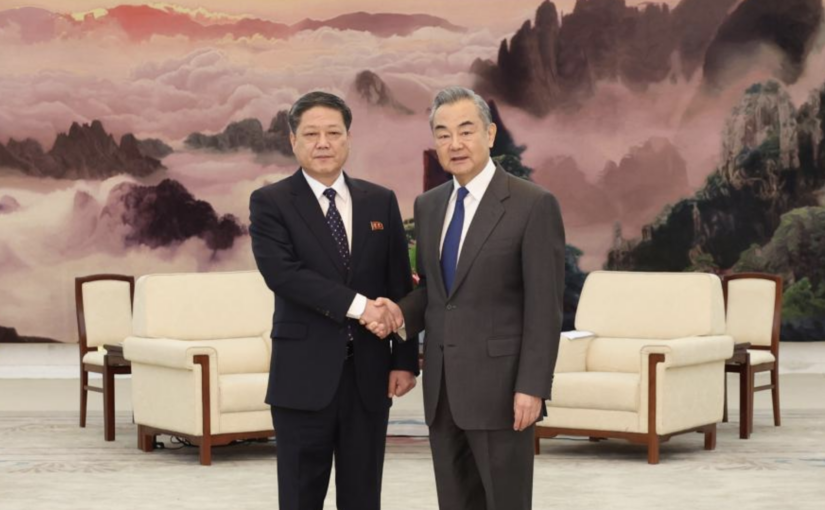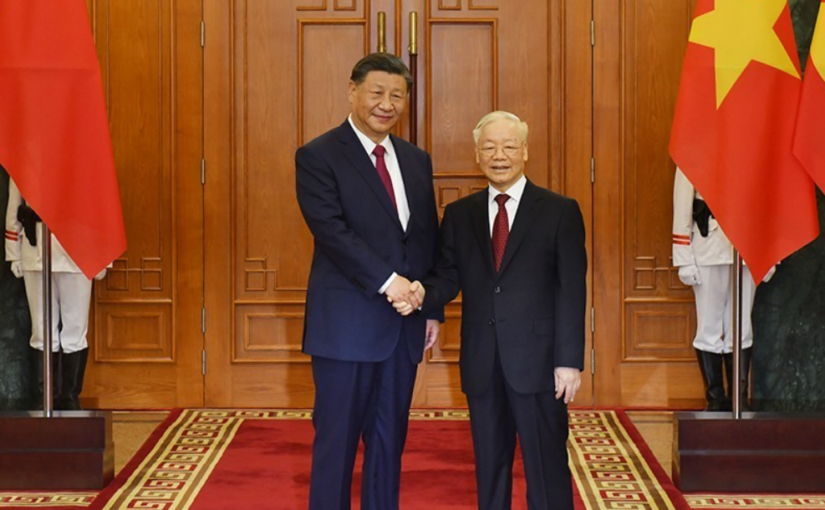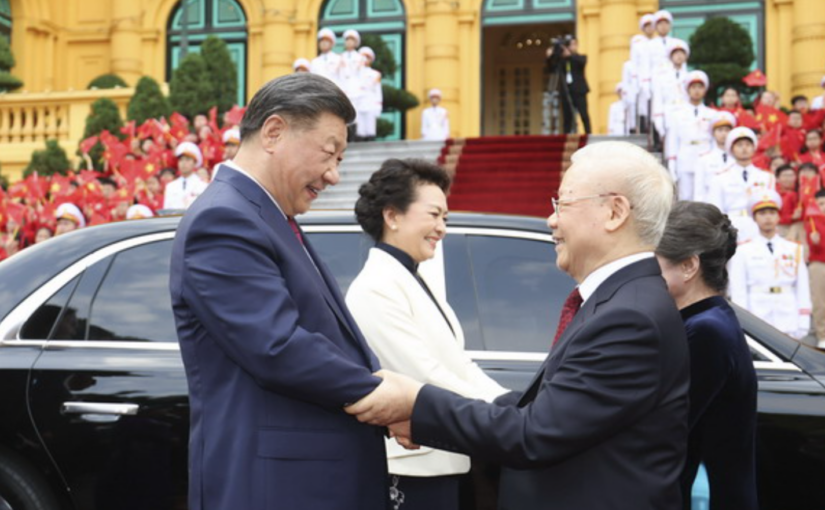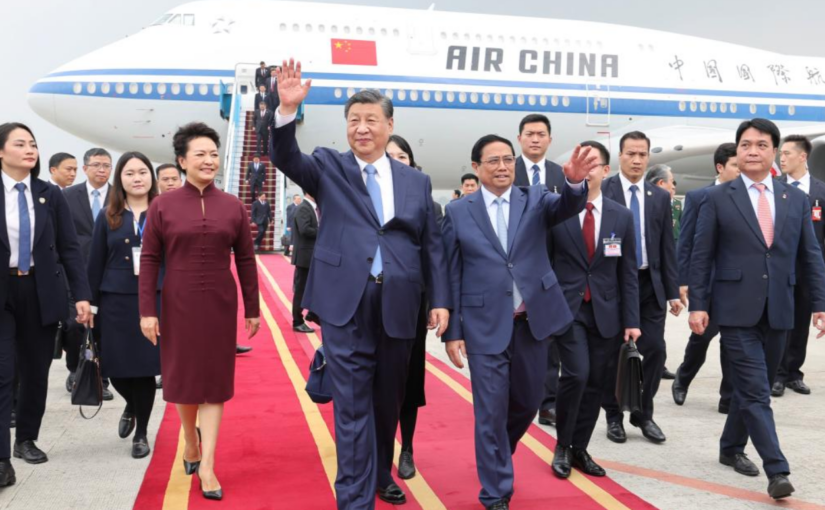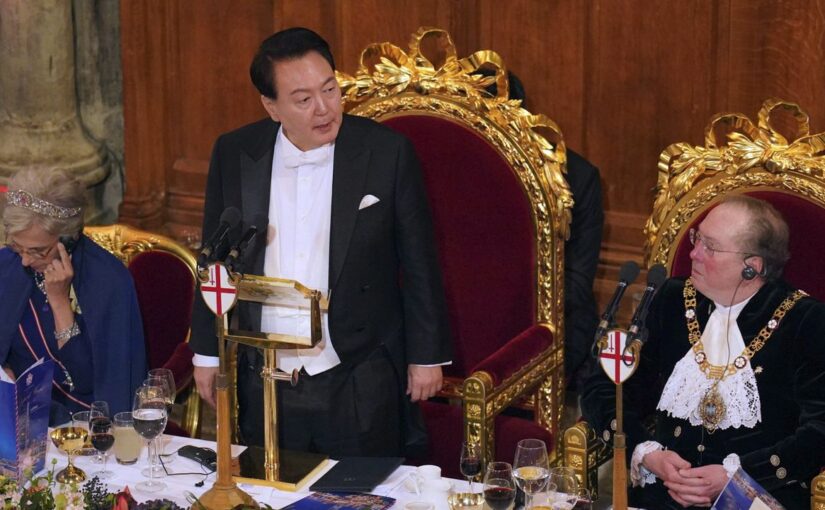Sri Lankan Prime Minister Dinesh Gunawardena visited China from March 25-30 at the invitation of his Chinese counterpart Li Qiang. The visit and the agreements reached were a powerful reaffirmation of the long-standing friendship between the two countries and a clear refutation of the slanders spread in the imperialist countries, in particular, regarding their bilateral cooperation under the Belt and Road Initiative (BRI) and China’s supposed ‘debt trap diplomacy’.
Gunawardena met with President Xi Jinping on March 27. Noting that the friendship between China and Sri Lanka enjoys a long history and the two peoples share a natural affinity, Xi said that consolidating and promoting China-Sri Lanka relations serves the fundamental interests and reflects the common expectations of the two peoples.
China is willing to work with Sri Lanka to carry forward the spirit of the Rubber-Rice Pact, which is characterised by “independence, self-reliance, unity and mutual support,” to consolidate political mutual trust, enhance exchanges of experience in governance, expand practical cooperation, and advance the high-quality Belt and Road cooperation.
The reference to the Rubber-Rice Pact carries great significance. The root of the two countries’ special friendship, it was concluded in December 1952, at a time when Sri Lanka (then known as Ceylon) had not long won its national independence from British colonial rule and the Chinese revolution had recently triumphed. More particularly, by this pact Sri Lanka courageously defied and broke the US-led blockade that had been imposed on New China at a time when the Chinese Volunteer Army was fighting on the Korean front. The agreement, which met the crucial needs of both countries at that time, lasted for 30 years, and led to the United States imposing sanctions, including those aimed at crippling its rubber production, and cutting off aid to Sri Lanka.
Xi added that both sides should make joint efforts to promote high-quality Belt and Road cooperation, especially that of the two flagship projects, the Colombo Port City and the Hambantota Port. China and Sri Lanka should also work together to enhance logistics, energy, and industrial cooperation, and promote exchanges and cooperation in digital economy, green economy, clean energy, culture-oriented tourism and marine economy. China, he said, is willing to advance cooperation with Sri Lanka on rural poverty reduction, to help the country with economic transformation and upgrading, and with sustainable development.
The two sides, he added, should continue to maintain the Five Principles of Peaceful Coexistence, enhance coordination on international and regional affairs, safeguard the common interests of both sides, uphold international fairness and justice, and promote the construction of a community with a shared future for humanity.
Gunawardena expressed appreciation for China’s assistance to Sri Lanka in times of difficulty, saying that projects such as the Colombo Port City and the Hambantota Port have boosted Sri Lanka’s economic and social development, as well as the overall development of the region.
The previous day Gunawardena held meetings with Premier Li Qiang and Zhao Leji, Chairman of the National People’s Congress (NPC) Standing Committee.
Li said China and Sri Lanka are strategic partners of cooperation characterised by sincere mutual assistance and enduring friendship spanning generations. The two countries have always respected each other and enjoyed equality and reciprocal cooperation since the establishment of diplomatic relations 67 years ago.
Gunawardena thanked China for providing long-term support to Sri Lanka’s efforts to safeguard national sovereignty, independence, and territorial integrity, and helping the country realise economic and social development and cope with the COVID-19 pandemic and financial crisis.
Hailing the Belt and Road Initiative and the global initiatives proposed by China, he said that Sri Lanka has always adhered to the one-China principle and will continue to firmly pursue policies to strengthen friendly cooperation with China.
Zhao said that since the establishment of diplomatic relations between the two countries in 1957, China and Sri Lanka have always enjoyed a sound and steady relationship despite changes in the international landscape.
The two sides released a joint statement on March 29. Noting that the Sri Lankan leader had also attended the Boao Forum for Asia Annual Conference 2024, held on the southern island of Hainan, during his visit, the statement said that:
“The two sides share the view that the peoples of China and Sri Lanka enjoy long-standing friendship, and have engaged in mutual learning, mutual assistance and seeking strength through unity. In the 67 years since the establishment of diplomatic ties, the two countries have strengthened traditional friendship, enhanced political mutual trust, achieved fruitful results in practical cooperation, and engaged in close coordination on regional and international issues, setting a fine example of friendly interactions and mutually beneficial cooperation between countries of different sizes. The two sides agree to carry forward the spirit of independence, self-reliance, solidarity and mutual assistance enshrined in the Agreement on Rice for Rubber, jointly tackle challenges, share opportunities and seek common development, thereby cementing and expanding the China-Sri Lanka strategic cooperative partnership based on sincere mutual assistance and ever-lasting friendship to bring greater benefits to the two countries and peoples.”
Sri Lanka expressed its appreciation to China for “the support that helped its financial difficulties, and, in particular, the pioneering step taken by the Chinese financial institutions last year to propose a bilateral debts settlement plan and the preliminary agreement reached with Sri Lanka on the settlement of China-related debts on the basis of friendly consultation.”
Sri Lanka also expressed thanks and appreciation for “the assistance on its economic and social development, and speaks highly of the important role played by Belt and Road cooperation in boosting the economic development and livelihood improvement in Sri Lanka and other Belt and Road partner countries. The two sides agree to work together to deepen high-quality Belt and Road cooperation, accelerate the formulation of a Belt and Road cooperation plan, and make all-out efforts to advance the Colombo Port City project and the integrated development project of Hambantota Port as signature projects of Belt and Road cooperation between the two countries.
“Sri Lanka welcomes the investment of more Chinese enterprises, and stands ready to provide a favourable investment and business environment for them and roll out at a faster pace preferential policies to facilitate the implementation of the Colombo Port City and Hambantota Port integrated development projects. China will continue to encourage competent Chinese enterprises to invest in Sri Lanka and assist Sri Lanka in achieving economic transformation and sustainable development.”
After detailing concrete steps in a range of areas, including trade, emergency humanitarian assistance, economic development, people’s livelihood, agriculture, education, cultural heritage, tourism, sister city and people-to-people exchanges, and medical aid, the joint statement continued:
“The two sides will jointly champion the building of an equal and orderly multipolar world, practice true multilateralism, promote greater democracy in international relations, and call on all countries to jointly safeguard the purposes and principles of the UN Charter, jointly defend the universally recognised basic norms of international relations, and jointly contribute to the reform and development of the global governance system.”
They also “hold the view that in marking the 70th anniversary of the Five Principles of Peaceful Coexistence, it is important to further carry forward these five principles, i.e. respect for sovereignty and territorial integrity, mutual non-aggression, mutual non-interference in internal affairs, equality and mutual benefit, and peaceful coexistence, and commit to building a community with a shared future for Asia and for humanity.”
The following articles were originally published by the Xinhua News Agency.
Xi meets Sri Lankan PM in Beijing
BEIJING, March 27 (Xinhua) — Chinese President Xi Jinping met with Sri Lankan Prime Minister Dinesh Gunawardena in Beijing on Wednesday.
Noting that the friendship between China and Sri Lanka enjoys a long history and the two peoples share a natural affinity, Xi said consolidating and promoting China-Sri Lanka relations serves the fundamental interests and reflects the common expectations of the two peoples.
China is willing to work with Sri Lanka to carry forward the spirit of the Rubber-Rice Pact, which is characterized by “independence, self-reliance, unity and mutual support,” to consolidate political mutual trust, enhance exchanges of experience in governance, expand practical cooperation, and advance the high-quality Belt and Road cooperation, Xi said.
He noted that China and Sri Lanka should join hands to advance their strategic cooperative partnership featuring sincere mutual assistance and ever-lasting friendship.
China firmly supports Sri Lanka in safeguarding national sovereignty, independence and national dignity, and in exploring a modernization path suited to its national conditions, Xi said, adding that China will continue to provide due assistance within its capacity for Sri Lanka’s economic and social development.
He said that both sides should make joint efforts to promote high-quality Belt and Road cooperation, especially that of the two flagship projects, the Colombo Port City and the Hambantota Port. China and Sri Lanka should also work together to enhance logistics, energy and industrial cooperation, and promote exchanges and cooperation in digital economy, green economy, clean energy, culture-oriented tourism and marine economy.
China will continue to import more high-quality specialty products from Sri Lanka, encourage Chinese enterprises to invest and do business in the country, and hopes that the business environment in Sri Lanka will be fair and transparent, Xi said.
He added that China is willing to advance cooperation with Sri Lanka on rural poverty reduction, to help the country with economic transformation and upgrading, and with sustainable development.
The two sides should continue to maintain the Five Principles of Peaceful Coexistence, enhance coordination on international and regional affairs, safeguard the common interests of both sides, uphold international fairness and justice, and promote the construction of a community with a shared future for humanity, Xi stressed.
Noting that Sri Lanka and China enjoy a traditional friendship, Gunawardena said that Sri Lanka adheres unswervingly to the one-China principle, unequivocally follows the policy of friendly cooperation with China, and gives China priority on its diplomatic agenda.
He expressed appreciation for China’s assistance to Sri Lanka in times of difficulty, saying that projects such as the Colombo Port City and the Hambantota Port have boosted Sri Lanka’s economic and social development, as well as the overall development of the region.
Sri Lanka will take part in the China-proposed Global Development Initiative, Global Security Initiative and Global Civilization Initiative, said Gunawardena, adding that the country will work with China to promote bilateral friendship, expand cooperation on trade and economy, education, tourism, poverty reduction and other fields, and improve international and multilateral communication and coordination.
Continue reading China and Sri Lanka reaffirm longstanding friendship and refute imperialist slanders